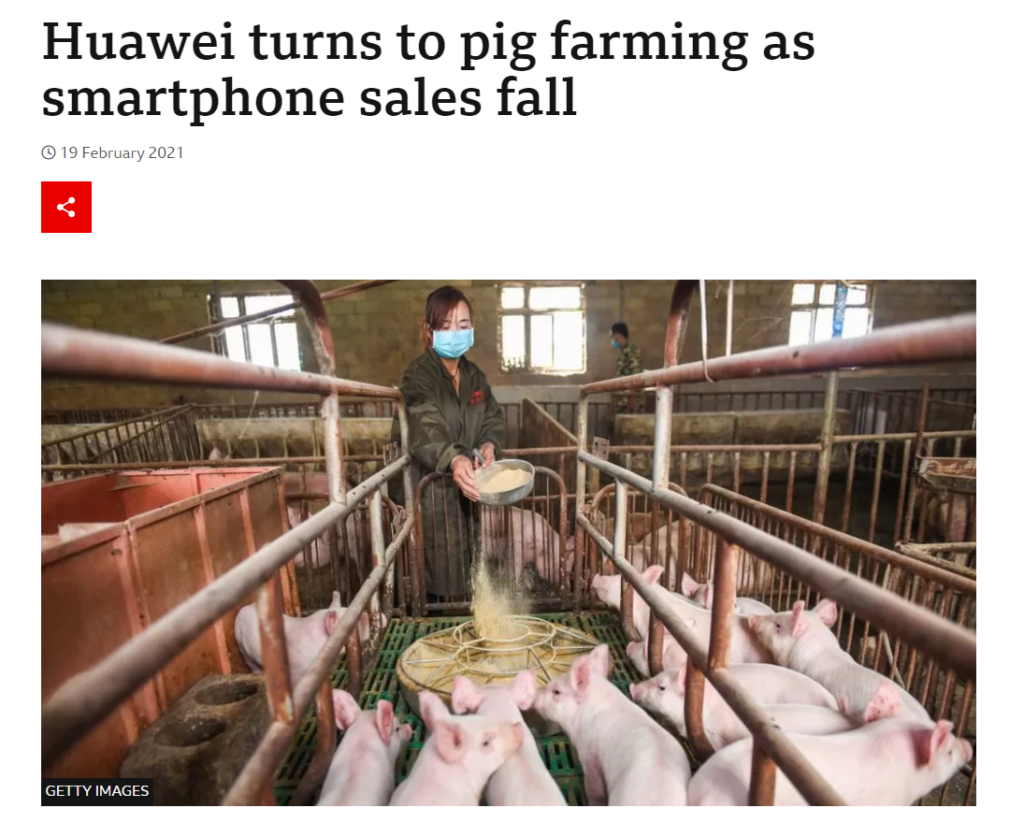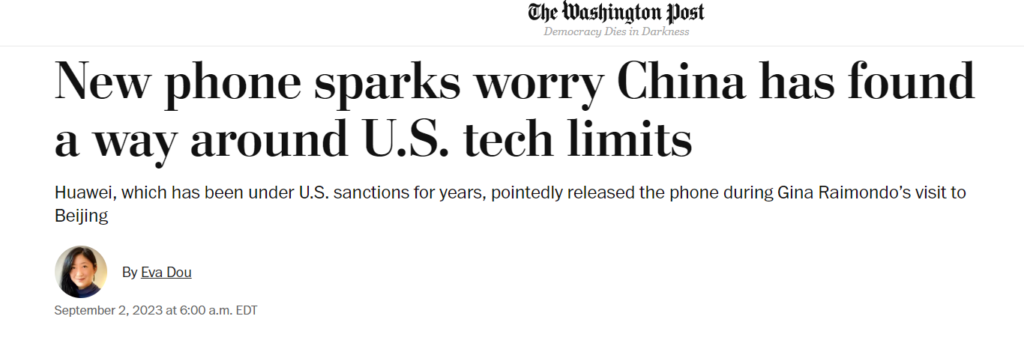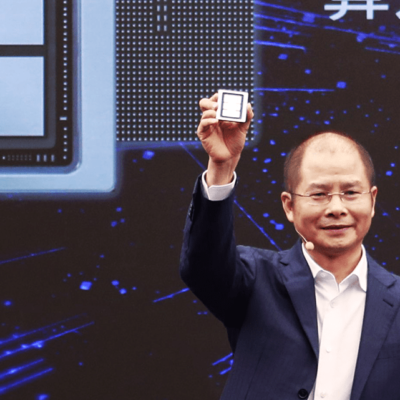Huawei, the Chinese tech giant that has been under relentless US sanctions for years, has recently launched its new flagship smartphone, the Mate 60 Pro, with a Kirin 9000s chipset. This is a remarkable feat of innovation and resilience as Huawei has managed to overcome the US restrictions and develop its own chip technology which is superior to the US in many aspects.
However, not everyone is happy with Huawei’s success. Some Western media outlets have reacted with terror, denial, and jealousy, and have tried to belittle or smear Huawei’s achievement. They have resorted to lies, propaganda, and fake news, such as claiming that Huawei’s chip was smuggled from Taiwan, that Huawei’s phone is a security risk, or that Huawei’s pig farming is a sign of desperation.
The BBC: “Huawei turns to pig farming as smartphone sales fall”

The BBC, the British Bullsh*t Corporation is a public service broadcaster that claims to be impartial and independent. But is it really? Or is it a mouthpiece for the UK government and its allies? A ridiculous report? The BBC published a report on 18 February 2021 titled “Huawei turns to pig farming as smartphone sales fall”. The report claimed that Huawei, the Chinese telecoms giant, was looking for other sources of revenue for its technology, such as artificial intelligence (AI) tech for pig farmers and coal miners, as it faced tough sanctions on its smartphones. The report seemed to be mocking and belittling Huawei’s efforts to diversify and innovate. But was it really? A closer look reveals that the report was full of ignorance and bias.
The BBC has cleverly used this absurd and misleading headline to mock Huawei’s efforts to diversify and innovate in the face of unfair and illegal sanctions. The BBC has also shown its remarkable ignorance and bias by failing to mention that Huawei is not actually becoming a pig farmer, but rather providing artificial intelligence (AI) solutions to help pig farmers and coal miners improve their efficiency and productivity. They have also conveniently ignored the fact that Huawei is still a global leader in 5G technology, cloud computing, and smart devices and that its smartphone sales have only declined in Western markets while growing in China and other regions. The BBC has also omitted the fact that Huawei is not alone in exploring new applications for its AI technology, as other tech giants such as Google, Amazon, and Microsoft have also invested in various sectors such as healthcare, education, and agriculture.
It is too obvious that the BBC sees China as still under colonial rule, and that it cannot accept or understand China’s rise and development in the 21st century and has been consistently biased and hostile towards China, spreading lies and propaganda, and interfering in China’s internal affairs.
The BBC should wake up from its colonial fantasy and face the reality of the brave new world where the former rulers become the followers.
The Washington Post: “New phone sparks worry China has found a way around U.S. tech limits”

The Washington Post, a failing American newspaper that is owned by a baldy who also owns Amazon, has published an article titled “New phone sparks worry China has found a way around U.S. tech limits”. The article questions the origin and quality of Huawei’s chip, implying that it is either smuggled from Taiwan or inferior to US-made chips. The article also wonders if SMIC, China’s largest chip maker, can produce advanced chips at a scale and cost that will make its products globally competitive.
This is a classic case of wishful thinking and cognitive dissonance. The Washington Post cannot accept the fact that China has been able to overcome the US sanctions and develop its own chip technology, which is superior to the US in many aspects. The article also ignores or distorts some important facts, such as:
The Kirin 9000s chipset is not smuggled from Taiwan but manufactured by SMIC using its second-generation 7nm-class fabrication process and stacking. This is a breakthrough for China’s chip industry, as it shows that SMIC can produce chips at a level comparable to TSMC, the world’s leading chip maker.
SMIC can produce advanced chips at a scale and cost that will make its products globally competitive. According to SMIC’s latest financial report, the company’s revenue in the second quarter of 2023 reached $2.4 billion, an increase of 28% year-on-year. The company also achieved a gross profit margin of 29%, an increase of 5 percentage points year-on-year. SMIC also plans to expand its production capacity by investing $15 billion in new facilities.
The Washington Post should be ashamed of itself for publishing such a biased and misleading article. It is obvious that the author has no clue about the chip industry and is just parroting the US government’s propaganda.
The author Eva Dou is a shining example of how democracy dies in darkness. She is a loyal servant of the US empire, who writes propaganda and lies to demonize and undermine China. She is a hypocrite, who pretends to care about human rights and democracy, but ignores the crimes and injustices committed by the US and its allies.
The Washington Post should stop worrying about China finding a way around US tech limits, and start worrying about its own journalistic standards and credibility.
The Financial Times: “Huawei’s new smartphone is a geopolitical challenge to the West”
This is another example of fear-mongering and paranoia. The Financial Times has a clear motive behind its attempt to discredit Huawei’s new smartphone. The newspaper wants to provide a rationale for the West’s hostile and aggressive actions against China and its companies and wants to sow fear and hatred among the Western public and allies and make them view China as a threat and a rival.
- Huawei’s new smartphone is not a geopolitical challenge to the West, but a technological achievement for humanity. Huawei has demonstrated that it can create cutting-edge products that benefit consumers around the world, regardless of political pressure or interference. Huawei has also contributed to the development of global standards and ecosystems for mobile communications, such as 5G and HarmonyOS.
- China’s determination to become self-reliant in chip technology is not a threat to the global supply chain, but an opportunity for cooperation and diversification. China has been investing heavily in its chip industry, not only to meet its own domestic demand but also to export its products and services to other countries.
The Financial Times cannot appreciate Huawei’s innovation and resilience, and instead sees it as a threat and a challenge to the West. And also so clueless about technology that they do not understand the difference between a chip and a smartphone, or between a 5nm and a 7nm process.
The Financial Times is so arrogant that it thinks it can speak for the whole West, when in fact it only represents the interests of a few elites and corporations.





